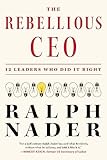Gabor Maté’s latest book effectively demolishes the belief that addictions arise from chemical imbalances, genetics, or bad choices.
In the Realm of Hungry Ghosts: Close Encounters with Addiction
By Gabor Maté, MD (2008)
As in his two previous books, Scattered Minds: A New Look at the Origins and Healing of Attention Deficit Disorder (1999) and When the Body Says No: The Cost of Hidden Stress (2003), Maté situates human suffering in a social context, inviting a political discussion of how social relations affect human health.
Scattered Minds locates symptoms of ADD in the social neglect of children’s needs and concludes, “What begins as a problem of society and human development has become almost exclusively defined as a medical ailment.”
When the Body Says No indicts “industrialized society along the capitalist model” as a source of toxic stress that “escalates as the sense of control diminishes” and causes physical and mental breakdown.
In the Realm of Hungry Ghosts condemns society for depriving human beings of what they need to thrive and then persecuting and punishing them for using drugs to relieve their pain.
All three books are well-written, engaging and brilliantly expose the fake science that pushes a pill for every ill.
Personal solutions?
While Maté situates human distress in the social realm, he seeks solutions in the personal realm.
In When the Body Says No the author concludes,
“In numerous studies of cancer, the most consistent identified risk factor is the inability to express emotion, particularly the feelings associated with anger.” (p.99)
Maté ignores industrial pollution as a cause of cancer and promotes the myth of “the cancer personality” – people who are more likely to get cancer because they repress their emotions, ignore their needs and put others first.
Even if there was evidence to back this myth (which there is not), these characteristics are not individual failings, but behaviors that society demands of all women and that employers demand of all workers.
In Hungry Ghosts, Maté questions why the war on drugs and drug addicts continues despite its total ineffectiveness and considerable harm. He avoids the logical conclusion that this war is not about drugs; it is the means by which the ruling class very effectively justifies its repressive military-prison system.
In all of his books, Maté questions why policy makers consistently ignore the research linking child deprivation and social stress with medical and social problems. He can’t answer this question until he acknowledges the impact of class conflict; the ruling class can accumulate capital only by sacrificing the needs of the working class.
Maté’s books are commercially successful because they tap into popular awareness of social problems while avoiding the uncomfortable conclusion that social revolution is required to solve them.
The result is a liberal version of blaming the victim – society cannot be changed, so the individual must change. This regressive message is more insidious because it is hidden behind a progressive cover.
I recommend these books for the wealth of facts within them. But draw your own conclusions about the solutions we need.










